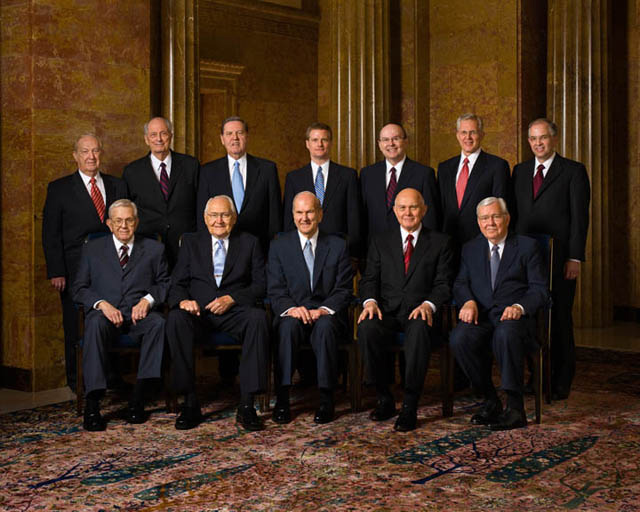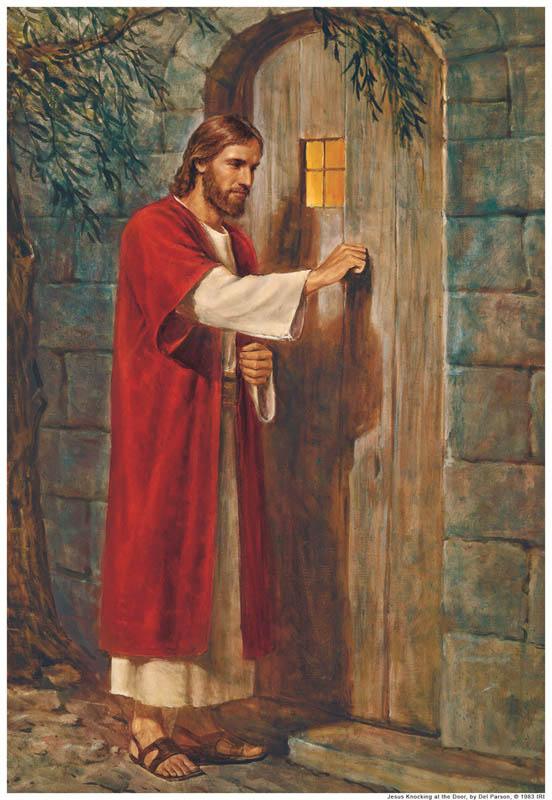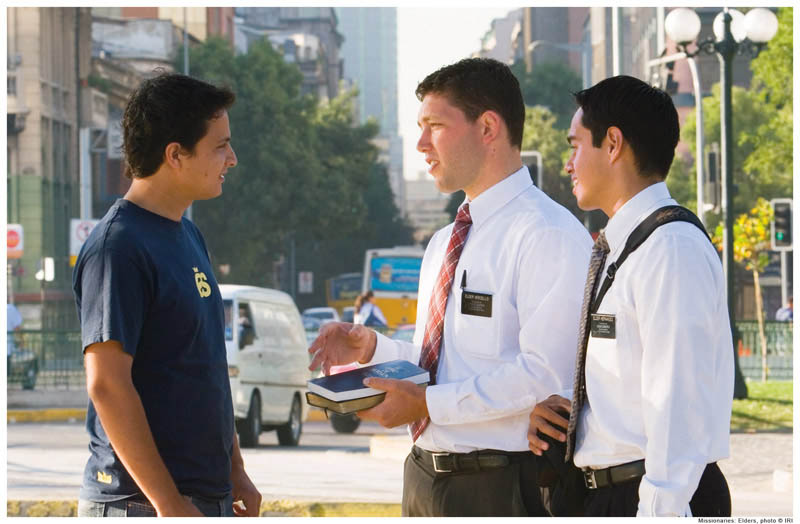In 1 Corinthians 12:10, we learn that one spiritual gift God gives to some people is the gift of prophecy. A spiritual gift is given to people in order to do God’s work and to bless others, and must not be used for personal gain. The gift comes through the Holy Ghost to those who are worthy and obedient to God’s commandments.
Although the Mormon church is headed by a prophet, the gift of prophecy referred to here is not referring to that prophet. The office of the prophet is held by the president of the Mormons. Only one person holds that office, but many people can have the gift of prophecy.
 “The spiritual gift of prophecy is quite different. As we read in the Book of Revelation, “The testimony of Jesus is the spirit of prophecy.” (Rev. 19:10.) The Prophet Joseph Smith relied on this scripture in teaching that “every other man who has the testimony of Jesus” is a prophet. (Teachings, p. 119.) Similarly, the Apostle Paul states that “he that prophesieth speaketh unto men to edification, and exhortation, and comfort.” (1 Cor. 14:3.) Thus, in the sense used in speaking of spiritual gifts, a prophet is one who testifies of Jesus Christ, teaches God’s word, and exhorts God’s people. In its scriptural sense, to prophesy means much more than to predict the future.
“The spiritual gift of prophecy is quite different. As we read in the Book of Revelation, “The testimony of Jesus is the spirit of prophecy.” (Rev. 19:10.) The Prophet Joseph Smith relied on this scripture in teaching that “every other man who has the testimony of Jesus” is a prophet. (Teachings, p. 119.) Similarly, the Apostle Paul states that “he that prophesieth speaketh unto men to edification, and exhortation, and comfort.” (1 Cor. 14:3.) Thus, in the sense used in speaking of spiritual gifts, a prophet is one who testifies of Jesus Christ, teaches God’s word, and exhorts God’s people. In its scriptural sense, to prophesy means much more than to predict the future.
The scriptures often use the word prophet and its derivatives in the broad sense of one who teaches and testifies of God. When the prophet Moses was asked to forbid two men who “prophesied in the camp,” he refused, expressing the wish “that all the Lord’s people were prophets.” (Num. 11:26, 29.) The Apostle Paul taught that Christians should “desire spiritual gifts, but rather that ye may prophesy.” (1 Cor. 14:1.) The Book of Mormon describes various times in which there were many prophets. (See 1 Ne. 1:4; W of M 1:16–18.) In our day, Elder Joseph Fielding Smith declared that “all members of the Church should seek for the gift of prophecy, for their own guidance, which is the spirit by which the word of the Lord is understood and his purpose made known.” (Church History and Modern Revelation, 3 vols., Salt Lake City, Deseret Book Co., 1953, 1:201.)
It is important for us to understand the distinction between a prophet, who has the spiritual gift of prophecy, and the prophet, who has the prophetic office” (Dallin H. Oaks, “Spiritual Gifts,” Ensign, Sep 1986, 68.)
The gift of prophecy, then, is meant to help us gain a testimony of Jesus Christ and to share that testimony with others. It helps us to understand God’s teachings and to apply them to our lives, as well as to help other apply those teachings to their lives.
Each person is able to receive personal revelation for his own sphere of responsibility. A mother, for instance, can receive personal revelation to help her make decisions about caring for her children and family, but not for her neighbor’s family unless she has a specific responsibility there. A bishop (similar to a lay pastor) can receive revelation for his own congregation, but not for any other congregation. The president of the United States can turn to God for revelation about leading his own country. Only the person who holds the prophetic office can receive prophecy for the entire church.
Elder Oaks, quoted above, reminded us that in the Old Testament, Miriam was a prophetess. She didn’t hold the office of the prophet-that belonged to Moses. However, she and Aaron once forgot that distinction and tried to take authority, arguing with God’s prophet. God Himself intervened. He reminded them that Moses was the prophet, not them, and that they were to listen to his counsel. A prophet’s role is to communicate God’s will to the church as a whole, and only Moses could do that at that time. This is a reminder to all of us that only God chooses who holds the office of the prophet, and that we must always honor that office. Those who don’t hold that office can’t try to take over for him. Throughout the Bible, God has demonstrated the importance of recognizing the prophet and then listening to his messages from God. Those who ignore or deny the prophet have always suffered serious consequences.
The gift of prophecy, for those who don’t hold the office of the prophet, is a very special gift. The ability to know without doubt of the divinity of Jesus Christ and to be able to use that knowledge to share what you know with others is a sacred responsibility and an honor. It must always be used wisely.
To use this gift wisely, we have to pray and spend time getting to know Jesus Christ on a personal level. As we study the scriptures, ponder what we read, pray, and spend time in the Savior’s spiritual presence, we can increase our testimony from believing to knowing. We must be certain, if we are blessed with the gift of prophecy, that our testimony is completely accurate so we are using the gift the best way possible. We are responsible for learning how to turn to God for information on who to trust for information and then accept the answers.
The late Terrie Lynn Bittner—beloved wife, mother, grandmother, and friend—was the author of two homeschooling books and numerous articles, including several that appeared in Latter-day Saint magazines. She became a member of the Church at the age of 17 and began sharing her faith online in 1992.






